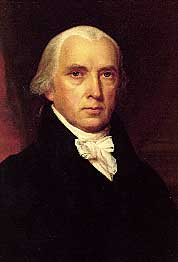A corporation is defined as:
- Corporation. An artificial person or legal entity created by or under the authority of the laws of a state. An association of persons created by statute as a legal entity.
The legal attributes of the corporation, and the alleged “benefits” that attorneys most commonly discuss with churches to convince them of their need to incorporate are:
- A corporation has limited liability protection.
- A corporation may exist in perpetuity.
- A corporation may hold title to real property.
One additional legal attribute of any corporation is something that attorneys generally don’t like to discuss with their church clients:
- A corporation may sue and be sued.
In point of fact, there is a great deal that your attorney is not likely to disclose, in the way of the various legal attributes of the corporation, that you might not find so attractive. In the landmark case of Hale vs. Henkel, the U.S. Supreme Court stated the following regarding corporations:
- Upon the other hand, the corporation is a creature of the State. It is presumed to be incorporated for the benefit of the public. It receives certain special privileges and franchises, and holds them subject to the laws of the State and the limitations of its charter. Its powers are limited by law. It can make no contract not authorized by its charter. Its rights to act as a corporation are only preserved to it so long as it obeys the laws of its creation.
- Hale v. Henkel, 201 U.S. 43 at 74 (1906)
From this case we learn that:
- A corporation is “a creature of the State.”
- The State is “sovereign” over the corporation.
- The corporation is “incorporated for the benefit of the public.”
- A corporation is a State “franchise.”
- Incorporation is a State “privilege.”
- A corporation is “subject to the laws of the State.”
- “Its powers are limited by law.”
- It must “obey the laws of its creation.”
- A corporation has no constitutionally-protected rights.
These are not new or novel legal principles that the Supreme Court just discovered in 1906. Rather, these are legal principles that date back many centuries. The corporation is a product of ancient Rome. The corporation, as the legal entity we are familiar with today, dates back to at least 250 B.C.
By 6 A.D. and the codification of Corpus Juris Civilis (the first great codification of Roman civil law) all “spontaneous collectivities of persons” were required to incorporate. The early church was persecuted over their refusal to incorporate. Had they incorporated they could have avoided much of the persecution they otherwise suffered at the hands of the Romans.
Rome persecuted the Christians not for Who they worshipped. Rome had hundreds of deities, and they could care less who or what you worshipped, as long as you were “licit” (licensed). The church was persecuted not because they worshipped Jesus Christ, but because of the manner in which they functioned — an ecclesia. The church was declared to be “illicit,” and held in a state of “civil disobedience,” because of their refusal to incorporate. Why did the church refuse incorporation? Largely because they knew that it would destroy their testimony that Jesus Christ is “Lord” and “Sovereign.”
Under Roman civil law, “Caesar is sovereign over the corporation,” and “the corporation is a creature of the State.” The early church willingly suffered for its refusal to accept “State privileges and benefits.”
- Because that for his name’s sake they went forth, taking nothing of the Gentiles. (3 John 7)
Corporations have been known and widely used for many centuries in virtually every corner of the earth. However, the corporation was not at all widely known in America during the colonial era, and for many decades after our independency. Indeed, the corporation was an entity viewed with great suspicion, if not trepidation. For many years it was extremely difficult and expensive to incorporate and, therefore, it was rather difficult to identify corporations of any kind, especially incorporated churches.
Today, all that is necessary to incorporate is that you fill out the necessary forms and file them with your Secretary Of State’s office; but that wasn’t always the case. It used to be that if you wanted to incorporate you would have to petition your state legislature for a corporate charter, and they weren’t in the habit of handing those out to just anyone who wanted one. In order to be issued a corporate charter, you had to prove to a majority of your state legislators that you simply couldn’t operate any other way. As a result, the vast majority of businesses operated as sole proprietorships and general partnerships.
Those who have ever had to petition their state legislature for anything know that it is a time-consuming process, and often leads to frustration, if not failure. For any church to request a corporate charter would surely be met by failure (at least after ratification of the Constitution and the First Amendment), since the states viewed the incorporation of any church as a government “establishment of religion.” Some state legislatures, such as Virginia and West Virginia, went so far as to amend their state constitutions to “forever prohibit the incorporation of any church.”
 In 1811 Congress ratified a bill, to incorporate the Protestant Episcopal Church in Alexandria, Virginia. When the bill was presented for President James Madison’s signature, he promptly vetoed it. He furnished a list of his objections, in a veto message, which in part included:”Because the bill exceeds the rightful authority to which governments are limited by the essential distinction between civil and religious functions, and violates in particular the article of the Constitution of the United States which declares that ‘Congress shall make no law respecting a religious establishment.’ The bill enacts into and establishes by law sundry rules and proceedings relative purely to the organization and polity of the church incorporated… This particular church, therefore, would so far be a religious establishment by law, a legal force and sanction being given to certain articles in its constitution and administration.” James Madison had no difficulty with grasping the fact that the bill was wholly unconstitutional, although the majority in Congress evidently did not. With the Episcopal Church having already declared its intentions, the Virginia state legislature prevented any church from ever incorporating by amending their Constitution to preclude their doing so. To this very day, it is unlawful to incorporate a church in Virginia.
In 1811 Congress ratified a bill, to incorporate the Protestant Episcopal Church in Alexandria, Virginia. When the bill was presented for President James Madison’s signature, he promptly vetoed it. He furnished a list of his objections, in a veto message, which in part included:”Because the bill exceeds the rightful authority to which governments are limited by the essential distinction between civil and religious functions, and violates in particular the article of the Constitution of the United States which declares that ‘Congress shall make no law respecting a religious establishment.’ The bill enacts into and establishes by law sundry rules and proceedings relative purely to the organization and polity of the church incorporated… This particular church, therefore, would so far be a religious establishment by law, a legal force and sanction being given to certain articles in its constitution and administration.” James Madison had no difficulty with grasping the fact that the bill was wholly unconstitutional, although the majority in Congress evidently did not. With the Episcopal Church having already declared its intentions, the Virginia state legislature prevented any church from ever incorporating by amending their Constitution to preclude their doing so. To this very day, it is unlawful to incorporate a church in Virginia.- In Caesar’s Grip, page 66, by Peter Kershaw
Of Madison’s historic veto, constitutional law professor John Eidsmoe states in his book, Christianity and the Constitution:
- His reason was that incorporation was a form of licensing by which government gave churches permission to operate. Therefore, incorporation was superfluous; government has no jurisdictional authority to tell churches they can or cannot operate.
Madison’s veto set an historic precedent that was seldom departed from, at least up until the turn of the twentieth-century. In 1898, New Jersey became the first state to “liberalizate” their incorporation laws. The New Jersey state legislature delegated its powers to incorporate to the New Jersey Secretary Of State. Rather than issuing corporate charters, the Secretary Of State issued “articles of incorporation.” All the former impediments to obtaining corporate status were done away with.
In order to “compete” with New Jersey, other states quickly followed suit and liberalized their incorporation laws, as well. Soon the mainline church denominations, no longer hindered by state legislators, incorporated. Andrew Carnegie, a wealthy industrialist who sat on the board of directors for the largest Presbyterian denomination (PCUSA), was first to encourage his denomination to incorporate. Carnegie did so not because of all the reasons we hear today. Not once did he ever even mention limited liability protection. Rather, Carnegie spoke highly of the corporation, based upon its alleged “efficiencies.”
Other industrialist tycoons, such as Cleveland Dodge and John Wanamaker, who sat on the boards of other mainline denominations, also encouraged their denominations to incorporate, based upon their theories of “improved efficiency.” This was the industrial age and industrialists had rapidly become “corporate men.” In their worldview, the church too must become “modernized,” and incorporation was a necessary element of modernization.
Eventually, many local churches, encouraged by the example of their denominations, also incorporated. By the mid-twentieth century, incorporation of the church had become the status quo.
Madison’s veto of 1811, and his reasons for that veto have, by and large, been abandoned, if not completely forgotten.
Of even greater concern is the fact that today’s church has, with few exceptions, abandoned the beliefs of the early church fathers who refused to incorporate, and suffered Rome’s persecution, as a direct result. Incorporation was mandatory for all “spontaneous collectivities of persons” throughout Rome. Yet they refused Caesar’s “privilege.”
In America, incorporation is completely voluntary. Furthermore, as we’ve already mentioned, it used to be almost impossible to incorporate a church, based upon the fact that no church can be free and independent of that government that incorporates it.
Yet churches today incorporate routinely, a decision which they make with about as much care and consideration as what brand of tissue paper to use in their lavatories; this in spite of the fact that there are huge legal and theological ramifications to any church seeking incorporation.
Read on to discover what some of those legal and theological ramifications are.

 Most churches in America have organized as “501c3 tax-exempt religious organizations.”
Most churches in America have organized as “501c3 tax-exempt religious organizations.”![501c3: The Devil's Church [creationliberty.com]](http://creationliberty.com/images/store07a.jpg)


 In 1811 Congress ratified a bill, to incorporate the Protestant Episcopal Church in Alexandria, Virginia. When the bill was presented for President James Madison’s signature, he promptly vetoed it. He furnished a list of his objections, in a veto message, which in part included:”Because the bill exceeds the rightful authority to which governments are limited by the essential distinction between civil and religious functions, and violates in particular the article of the Constitution of the United States which declares that ‘Congress shall make no law respecting a religious establishment.’ The bill enacts into and establishes by law sundry rules and proceedings relative purely to the organization and polity of the church incorporated… This particular church, therefore, would so far be a religious establishment by law, a legal force and sanction being given to certain articles in its constitution and administration.” James Madison had no difficulty with grasping the fact that the bill was wholly unconstitutional, although the majority in Congress evidently did not. With the Episcopal Church having already declared its intentions, the Virginia state legislature prevented any church from ever incorporating by amending their Constitution to preclude their doing so. To this very day, it is unlawful to incorporate a church in Virginia.
In 1811 Congress ratified a bill, to incorporate the Protestant Episcopal Church in Alexandria, Virginia. When the bill was presented for President James Madison’s signature, he promptly vetoed it. He furnished a list of his objections, in a veto message, which in part included:”Because the bill exceeds the rightful authority to which governments are limited by the essential distinction between civil and religious functions, and violates in particular the article of the Constitution of the United States which declares that ‘Congress shall make no law respecting a religious establishment.’ The bill enacts into and establishes by law sundry rules and proceedings relative purely to the organization and polity of the church incorporated… This particular church, therefore, would so far be a religious establishment by law, a legal force and sanction being given to certain articles in its constitution and administration.” James Madison had no difficulty with grasping the fact that the bill was wholly unconstitutional, although the majority in Congress evidently did not. With the Episcopal Church having already declared its intentions, the Virginia state legislature prevented any church from ever incorporating by amending their Constitution to preclude their doing so. To this very day, it is unlawful to incorporate a church in Virginia.